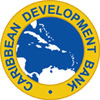
UNICRI is a United Nations entity established in 1965 to support countries worldwide in preventing crime and facilitating criminal justice.
Crime is a common concern both for governments and citizens across the globe. As crime becomes increasingly internationalized, new forms of crime emerge, and organized crime spreads, national responses and international cooperation are required in the fields of crime prevention and criminal justice. UNICRI supports governments and the international community at large in tackling criminal threats to social peace, development and political stability.
UNICRI is mandated to assist intergovernmental, governmental and non-governmental organizations in formulating and implementing improved policies in the field of crime prevention and criminal justice. UNICRI' s goals are:
UNICRI is governed by a Board of Trustees composed of eminent experts. The staff cover a wide range of expertise in the management of research, training, technical cooperation and documentation, and are supported by highly qualified consultants selected according to project requirements.
What UNICRI does
UNICRI's programmes aim to promote national self-reliance and the development of institutional capabilities. To this end, UNICRI provides a one-stop facility offering high-level expertise in crime prevention and criminal justice problems. Technical co-operation is enhanced by the use of action-oriented research to assist in the formulation of improved policies and concrete intervention programmes. Institutional and on-the-job training of specialized personnel form an integral part of UNICRI activities.
Areas of Action
With more than 50 years of experience, UNICRI has structured its work programmes and modus operandi in order to always be responsive to the needs of the international community.
UNICRI's programmes focus on different areas with the aim of creating and testing new and holistic approaches in preventing crime and promoting justice and development. UNICRI plays a leading role with respect to specific niches and supports the work of other international organizations through its specialized and advanced services.
The Institute's current priorities include:


